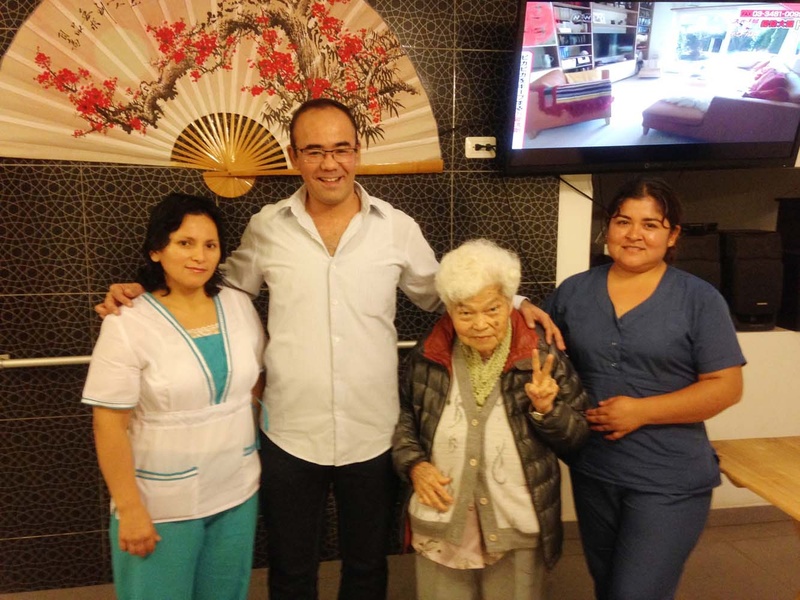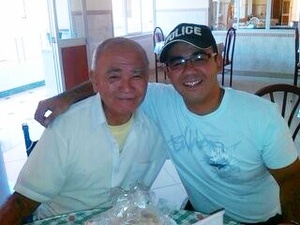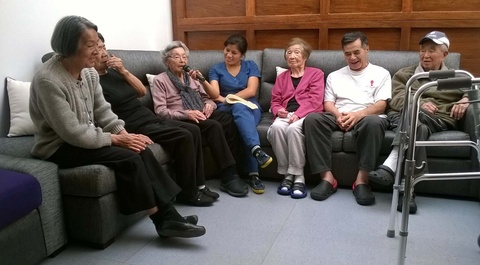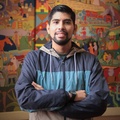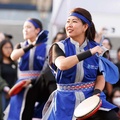There is a place in Lima reserved for the older Nikkei, a peaceful place that, more than an asylum or a refuge like there is in the Peruvian capital, seems like a residence where they can feel at home. Kazoku (meaning 'family') has that philosophy: live with the comfort and care that you would have with your loved ones.
Toño Tamashiro is the creator of what he defines as “the first private alternative for the elderly”, where the customs and idiosyncrasies of the Issei and Nikkei are cared for in this place in the Jesús María district (one in which concentrates a good number of Japanese descendants) a place to lead a dignified old age.
“One of the issues that we clarify to those who visit us is that this is not a hospital, we have the permanent support of Dr. Enrique Chinén and therapists for physical rehabilitation, but we do not have facilities to help people with delicate treatments,” says Tamashiro, who is dedicated to organizing musical events but who discovered this world out of necessity.
The inspiring man
Eight years ago, Toño's life took a turn when Takey Tamashiro, his father, had an accident, leaving him quadriplegic. He was hospitalized for four and a half months, but was able to face his illness with total lucidity. Upon discharge, Toño faced a great difficulty: not having a family member in Peru who could help him with a person who required permanent care.
“I discovered a world of sadness, neglect and abuse in nursing homes. I visited all the districts of Lima and my father was in more than one but he could never feel comfortable, he asked me to get him out of there.” Toño observed that the reality was one on visiting days and another on common days. The abuse of pills to keep the elderly sedated was shocking.
“You see them holding their bags of medicine or food because they steal from them,” says Toño, who based on all these experiences decided to build a building in which the 'ojichan' and 'obachan' can live in peace, following the customs of the cologne, like gohan without salt. In addition, he provides them with high-definition televisions with programs in Japanese and his staff has learned some basic words in Nihingo to speak with the Issei.
At all comfort
His father never stayed at Kazoku, but Toño remembers that on his last birthday he took him in his wheelchair to eat among the construction materials. “He knew what I was doing and I think he left proud,” says Tamashiro, who has received no donations or support from private companies.
Even so, it has been able to build five floors (at the moment there are only three enabled) in which 19 older adults live who share rooms (to avoid loneliness and risks to their safety) and which have bathrooms with first-class facilities, with sinks at the height of wheelchairs, telephone showers and common areas for watching television or talking.
“Here, if they want to sleep a little more, there is no problem, their food is saved,” says Toño, who has received people with severe depression and who have managed to recover. “It's kimochi,” he says: the warmth of home that is reinforced by a well-cleaned environment in which one breathes well-being.
musical medicine
Toño's job is to conduct an orchestra and sing. For this reason, during moments of recreation there is no shortage of karaoke, which guests enjoy and which serves as a kind of musical medicine. “Many arrive in poor health conditions. Their relatives believe that they are not going to recover and then they have returned for them, who have left walking.”
“Sometimes they ask me for songs that I don't know, from their school days,” adds Tamashiro, who remembers a man who didn't usually talk to anyone and whom he now shows in a video in which he is seen chatting at a party. They celebrate birthdays and, thanks to the fact that many belong to the Jinnai Center, of the Peruvian Japanese Association, from time to time they carry out activities outside.
They do walks, exercises and activities such as ikebana. They also invite you an obento. Since they are in a residential area, near the institution's headquarters, they also go to a park that seems designed for them because of the tranquility that is breathed. “It is important that family members understand that here they are not rented a bed, they are offered a home with all the comforts.”
Next projects
In Kazoku's lobby, a high-definition television screen displays Japanese programming. As we walk through the impeccable and fresh hallways, Toño tells me that one of his next plans is to install a wheelchair lift, and that he hopes to create a service area on the fourth floor and a recreation room on the fifth.
Currently, 10 people work here, including nurses and technicians, who have been well selected, since many of those who showed up were accustomed to nursing home practices. “Many say they give them healthy food, but at four in the afternoon, their last meal is bread and tea,” says Tamashiro, emphasizing that the diet here is balanced and low in condiments.
Toño calculates that if since 2014, when he inaugurated this residence, they have reached their installed capacity, in a few years they will need more space, so he is already thinking about a second location where he can receive more Issei, understanding that in current times it is increasingly difficult to give time and space to older adults. “We are open to any type of donation or contribution,” says Tamashiro.
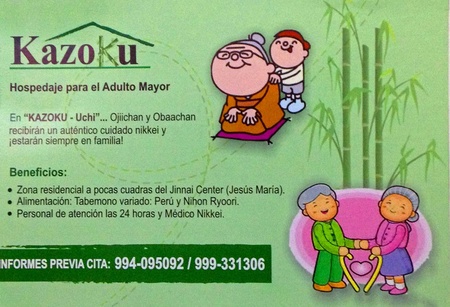
© 2016 Javier Garcia Wong-Kit


